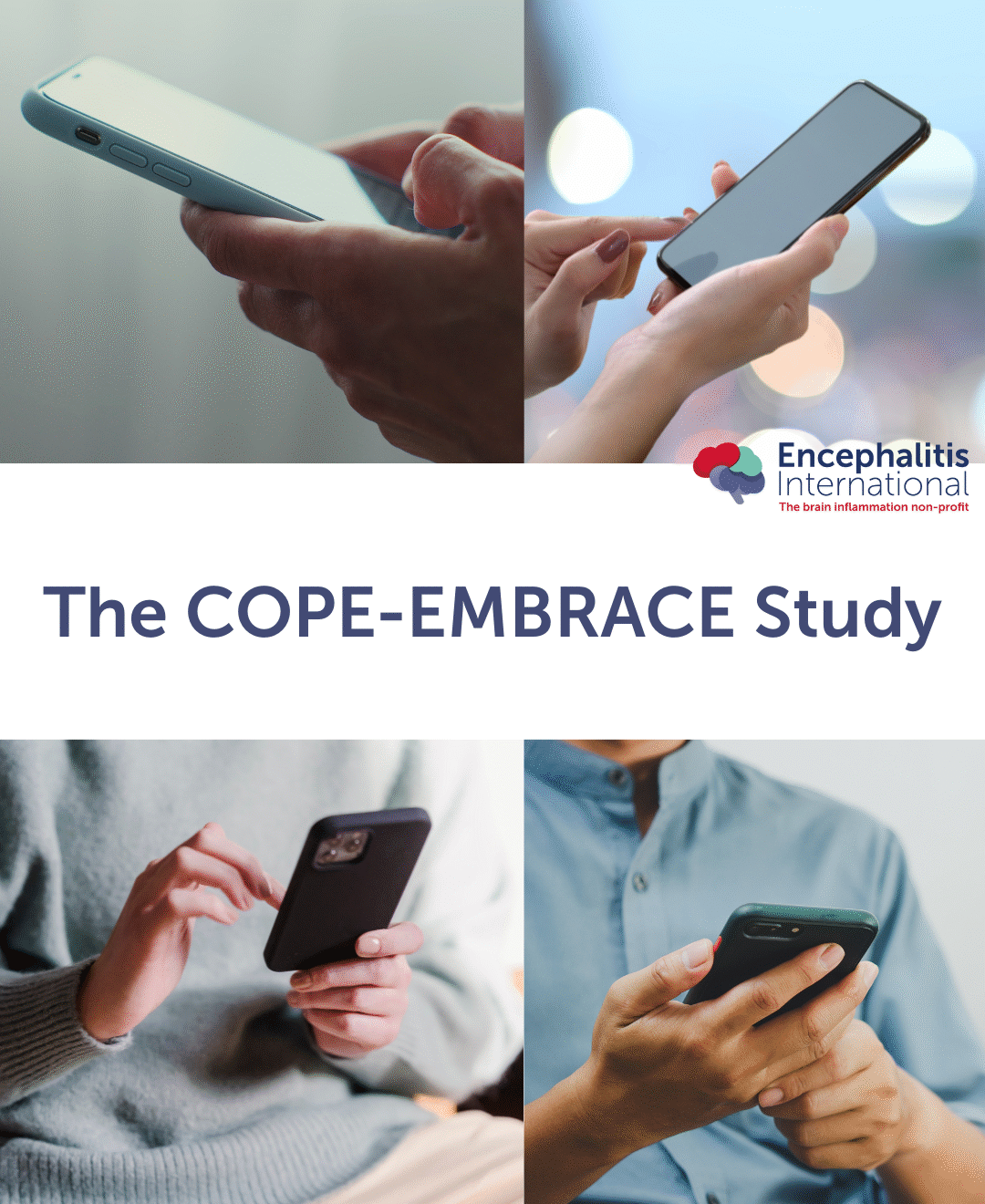How Real-Time Technology is Helping Us Understand Stress After Encephalitis

By the COPE-EMBRACE research team at King’s College London – Encephalitis International Seed Funding recipients
Living with the after-effects of encephalitis can be challenging. Many people experience not only physical and cognitive changes but also mental health struggles such as anxiety, depression, and overwhelming stress. But what if we could understand these emotional challenges more deeply, in real time, and find better ways to help?
That’s exactly what the COPE-EMBRACE study set out to explore.
Why This Study Matters
Every year in the UK, around 6,000 people are diagnosed with encephalitis. For many, the journey doesn’t end with physical recovery. Daily frustrations, like memory lapses, losing items, or difficulty concentrating, can build up and take a serious toll on mood and wellbeing.
Mental health problems, especially stress and depression, are common following encephalitis. But traditional methods of research rely on people trying to remember how they’ve felt over weeks or even months. We wanted to try something different.
A Modern Approach: Tracking Emotions in Real Time
Using a smartphone app, 20 people who had been diagnosed in the past with encephalitis took part in a four-month study. Each day, the app asked them questions about their mood, stress levels, and how they coped with difficult situations. Participants could also choose to log stressful moments as they happened.
The aim? To better understand what types of stress some people face after encephalitis, how they cope, and how that affects their mood.
The app was easy to use; participants gave it a thumbs up for being accessible and helpful. In fact, the average completion rate was almost 80%, showing just how engaged people were in sharing their experiences.
What We Found
Stress Is Common
Participants reported at least one stressful event on 35% of days, ranging from minor annoyances to more upsetting moments. The most common stressors included personal difficulties, challenges at work, and feeling overwhelmed by responsibilities at home.
Coping Style Matters
The way people coped with stress had a clear impact on their mood. On days when participants used avoidant coping (like ignoring a problem), they reported more depressive symptoms. In contrast, when they used approach-based coping (like problem-solving or seeking support), their mood tended to improve.
Interestingly, participants with higher levels of depression didn’t benefit as much from approach-based coping. This highlights the need for more tailored mental health support for some people.
Everyday Challenges Are Often Invisible
Participants shared how difficult it can be to explain their struggles to others. Cognitive issues such as forgetfulness, anxiety, or changes in their role within the family or workplace are often ‘invisible’ yet deeply distressing.
Using the App Felt Supportive
Some participants said the app gave them space to reflect, ‘vent’ and feel heard. Others found it became part of their routine. The emojis and check-ins helped them stay motivated. A few even said it helped them cope better just by being more aware of their emotions.
What’s Next?
We’ve learned a lot, but this is just the beginning. While daily tracking worked well, participants had suggestions too. They’d like more flexible ways to record stress, better reminders, and perhaps even a voice option instead of typing.
We’re now inviting some of these participants to join a new study that offers a one-off session with a clinical psychologist in training to help manage stress, based on what we’ve learned from COPE-EMBRACE.
Why This Matters for You
If you’ve been affected by encephalitis, you’re not alone. This research highlights just how common and real the emotional impact is and how your day-to-day experiences matter.
Thanks to everyone who took part in this study and shared their story. Your voice is helping shape future support for the encephalitis community.
Also, a big thanks to Encephalitis International for believing in our novel approach and funding this research.
We’re committed to making this work count, not just for research, but for real-life change.
